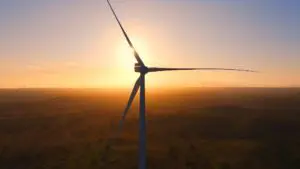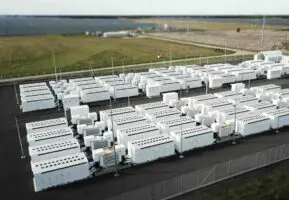Of all the questions that have been asked about the scandal surrounding Volkswagen’s cheating on vehicle emissions tests in the US – Who, what, when, how, and why – there is one that no one has come even close to answering. Why?
The facts of what happened seem pretty clear. VW deliberately installed what is known as a “defeat device” that would switch on when the software recognised it was being tested by authorities.
The purpose was to give the impression that the vehicles were a lot cleaner and more efficient than they were in reality. It happened over a period of at least five years. It disguised emissions that were up to 40 times above the legal limit. It was a fraud of massive proportions, but no one has been able to explain the reasons for it.
Clearly, someone thought there were commercial and production benefits from implementing this colossal deception. But why spend millions of dollars on a “defeat device” and the software to activate it at the right moment. Neither is a trivial piece of engineering. Why not just build a cleaner engine?
Maybe they couldn’t, at least at a price that would be attractive to consumers. Which leads to another question: Have rival car manufacturers done the same thing? The sharp falls in their share prices last week suggest that VW might be just the tip of the iceberg.
The European Federation for Transport & Environment, an NGO, says tests show clear discrepancies between laboratory emissions and real-world performance for several automakers including BMW, Mercedes-Benz and General Motors’ Opel unit, and these manufacturers might also employ similar kinds of software in Europe that VW has allegedly admitted to using in the US.
Such fears are reinforced by revelations that politicians in France, Germany and the UK went to great lengths to ensure that EU member states could not carry out the sort of “surprise checks” on the emissions of cars that the US Environmental Protection Authority is now planning.
VW may have accelerated push to hybrids and full electric vehicles
As the share price of major car-makers such as Daimler (maker of Mercedes) fell, one motor vehicle company was notable for going in the other direction: Tesla Motors. The full electric vehicle manufacturer jumped around 5 per cent late last week. Batteries are getting cheaper, diesels are not. The sort of controls that VW was avoiding cost around $US8,000 a car. And Tesla makes a valid point in this opportunistic ad.
VW’s actions, and the dirty secrets that will be revealed when we find out why it acted this way, may be used as a good reason to start shifting aggressively to vehicles that do not use fossil fuels at all. That’s a process that will be accelerated when, as many expect, the Paris climate change conference produces a framework that will guide the world towards a 2°C world, rather than the 4°C-5°C world that the planet is now heading towards.
The timing of the scandal is interesting, coming as US president Barack Obama welcomed China’s Xi Jinping, and that country’s commitment to the world’s biggest carbon trading scheme, and the US president’s continued emphasis on forceful regulation to close down, or clean up, coal-fired power stations. Add this to the visit of the Pope, and his call for climate action, and the launch of the UN’s Sustainability Goals for 2030.
As one analyst wrote: “For Volkswagen (and the auto industry), the dream of inexpensive clean diesel might be dead. Even if carmakers could deliver on VW’s false technological claims, the standard by which car companies can claim green status has shifted away from petrol-burning cars that use less fossil fuel—to an era of electric propulsion.”
 It should be noted that VW’s eGolf was the fifth best-selling pure EV in the United States, and it has plans to release 20 different EV and plug-in hybrid models by 2020. The new CEO of VW is Matthias Müller, the former head of Porsche, which produces few diesel cars and is about to release the “Mission E” – a 450km EV whose huge battery could be charged to 80 per cent in a mere 15 minutes.
It should be noted that VW’s eGolf was the fifth best-selling pure EV in the United States, and it has plans to release 20 different EV and plug-in hybrid models by 2020. The new CEO of VW is Matthias Müller, the former head of Porsche, which produces few diesel cars and is about to release the “Mission E” – a 450km EV whose huge battery could be charged to 80 per cent in a mere 15 minutes.
Can we trust big business in wake of VW scandal?
VW has also blown the halo of trust in which big brand names like to envelope themselves. As Will Hutton writes in The Guardian. VW’s actions are (further) proof that global business has become a law unto itself, driven by greed in a world measured only by share prices, bonuses and short-term performance targets.
“Volkswagen … became an autocratic fiefdom in which environmental sustainability took second place to production – an approach apparently backed by the majority family shareholder, with no independent scrutiny by other shareholders, regulators, directors or consumers,” Hutton writes.
“Even its unions became co-opted to the cause. Worse, the insiders at the top paid themselves, ever more disproportionately, in bonuses linked to metrics that advanced the fiefdom’s interests.”
Hutton pointed to the well-known study by Harvard and the London Business School that compared 90 American companies that took sustainability seriously with 90 that did not. Over an 18-year period, the 90 committed to sustainability delivered annual financial returns 4.8% higher than the other 90. As Hutton noted: “In order to deliver sustainability they had to organise themselves around a core purpose, and then embed checks and balances to keep themselves honest.”
Big business does not like regulation. As one software expert friend who grew up near Detroit told me this week, car manufacturer engineers resisted every little change.
“Seat belts? Too expensive; we’ll never be able to make a profit. Catalytic converters? Too expensive; we’ll never be able to make a profit. Airbags? Too expensive; we’ll never be able to make a profit.
“Every innovation for the public good was always seen as an assault on the right of private capital to make as large a profit as possible.”
Indeed, the question might readily be put on the claims of fossil fuel generators to reduce emissions through various technologies, not least carbon capture and storage. Controversy rages over the amount of emissions from shale gas in the US and coal seam gas in Australia. Some developers argue that the emissions should not even be tested. There is possibly no better argument to dump fossil fuels altogether. All attempts to “clean” emissions through scrubbers, or storage will be open to doubt without the most vigorous testing.
Can VW survive the crisis?
So, what does it mean for the future of VW? It is tempting to think that the company may not survive. It has lost $40 billion in market values, faces $25 billion of fines in the US alone, and has already set aside $10 billion in its quarterly accounts. The Swiss government has banned sales of new diesels, and the company will almost certainly face countless class-action suits in US, Europe and elsewhere, or if it will face a total recall of vehicles. It does, however, have some $10 billion in free cash flow and some $40 billion in what Moody’s describes as “net liquidity”.
What does VW scandal mean for Australia?
And what does it mean for owners of such vehicles in Australia? The quick answer is we don’t know. VW has said it fitted the defeat devices in 11 million vehicles across the world, but has not said how many, if at all, in Australia. It is estimated that between 35,000 and 50,000 vehicles of the makes affected – 1.6 litre and 2 litre diesel engines in VW, Skoda and Audi (A3) cars – have been sold in Australia. The models affected in the US include the Beetle, Golf, Passat and Jetta.
In Australia, there has been no breach of regulations, because we don’t have any. Australia distinguishes itself by having no fuel economy or carbon emission limits on its cars, and its limits on nitrogen oxides and other smog pollutants trail the Europeans badly, and the US even more.
But VW owners may still have reason to be pissed off. The resale value of their cars may have plummeted, and they may feel they have been conned by the promise of a “clean car”. Check out some of these ads in the US, put together by the New York Times. The Australian Competition and Consumer Commission is investigating what happened in Australia. It will be a laywers’ picnic.
Note: This article was adjusted to reflect the fact that Porsche does in fact produce some diesel motor models.










